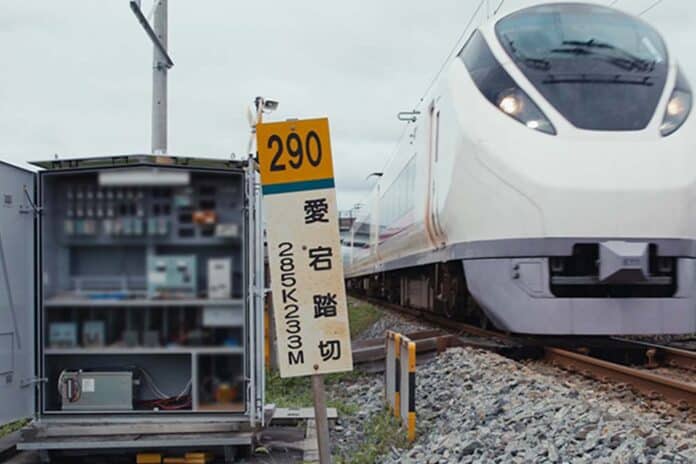Nissan has said it is using repurposed Nissan LEAF car batteries for some of Japan’s railroad crossing systems.
The new recycling method has been employed to help drive sustainability and is being used by the East Japan Railway Company (JR East) as part of a new trial.
The project began back in 2021 when engineers figured out a way to use the batteries to power emergency power supply units at the Atago railroad crossing on the Jōban Line, which runs through Minamisoma City in Fukushima Prefecture.
Nissan said its LEAF’s lithium-ion batteries retain 60 to 80% of their electricity storage capacity at the end of their life cycle in a car. This makes them good candidates for repurposing as either new vehicle or stationary batteries.
Repurposing vehicle batteries can reduce the CO2 emissions and rare resource usage associated with building a new battery from scratch. On top of that, it adds additional value to EV batteries, increasing the value of EVs in general and leading to their wider adoption.
Kaito Tochihara, assistant chief researcher at the East Japan Railway R&D centre, said switching from lead-acid to repurposed EV lithium-ion batteries not only promotes sustainability but also leads to improved performance from the battery itself.
Compared to lead-acid batteries, the reused lithium-ion variety requires only 1/3 of the charging time. They are also far more durable, lasting on average 10 years, compared to 3-7 years for a standard battery. Tochihara is particularly interested in battery maintenance.
“With lead-acid batteries,” he said, “we have to periodically visit railroad crossings to check the state of charge and any deterioration. However, with repurposed lithium-ion batteries, there is a control system attached, similar to an EV, so we can remotely check the battery’s status. This should lead to improved maintenance standards. This system also enables preventative maintenance by informing us of the battery’s status before its voltage becomes too low.”
Tochihara said: “Railroad crossings are points of contact between trains and public roads, so they have to be extremely safe and reliable. At 4R Energy Corporation, we develop our repurposed lithium-ion batteries from batteries designed for cars. Similar to a railroad crossing, such batteries require a high level of safety and security. Their reliability gives us the confidence to carry on our efforts.”







































 0113 2082620
0113 2082620 info@railbusinessdaily.com
info@railbusinessdaily.com 15 Mariner Court, Wakefield WF4 3FL
15 Mariner Court, Wakefield WF4 3FL

